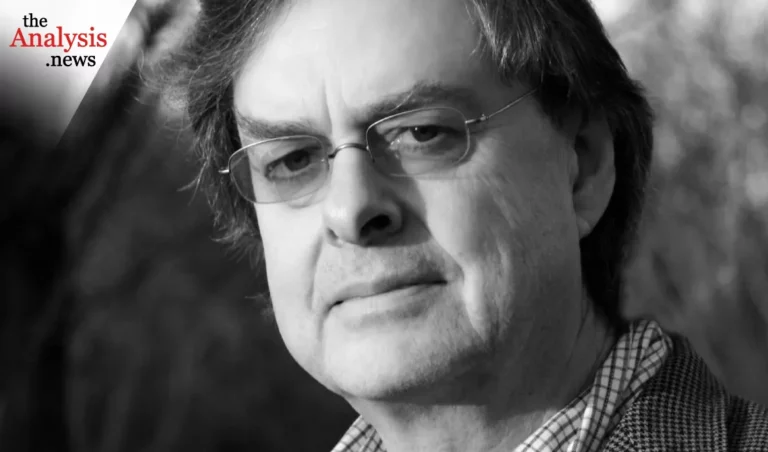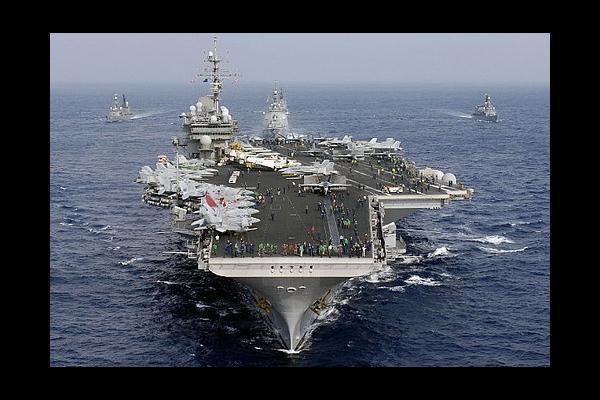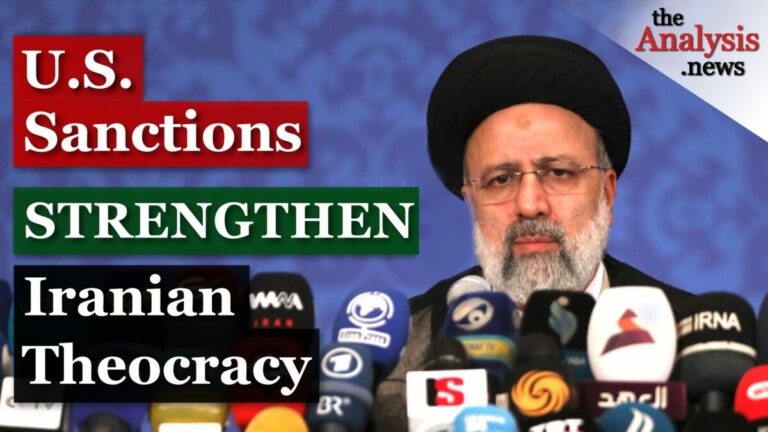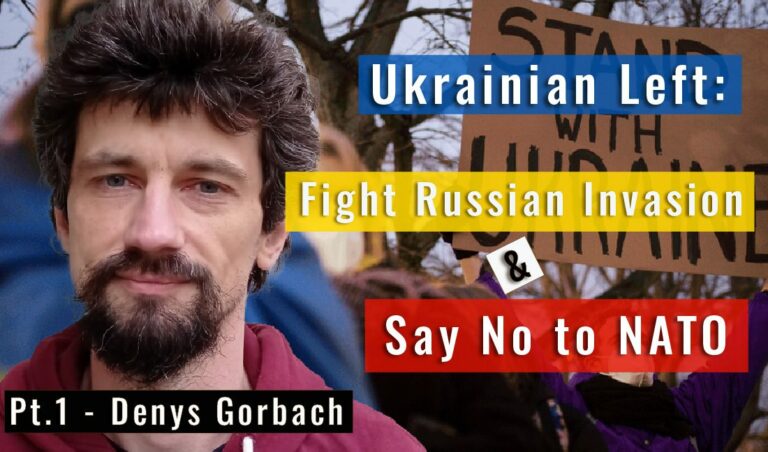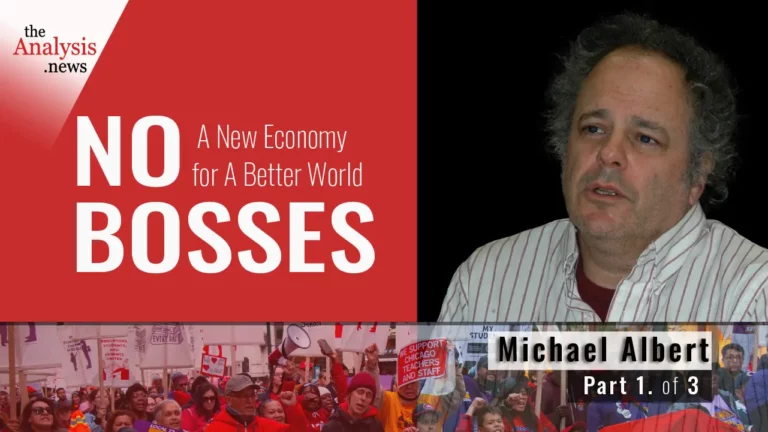Do Russians Fear Sanctions and What is the Public Opinion? – Stanislav Byshok Pt 2
Stanislav Byshok explains the attitudes of the Russian public and the reactions of the Russian media to the growing tensions between Moscow and Washington over Ukraine. Byshok joins Boyan Stanislavski and Maria Cernat on the Barricade.
TRANSCRIPT
Boyan Stanislavski
Hello and welcome again. This is another edition of on the Barricades, your favourite Eastern European political show on the internet. And I’m Boyan Stanislavski, your Host. And Maria Cernat, who’s here, is the co-Host of the show. Hello, Maria.
Maria Cernat
Hello.
Boyan Stanislavski
And we say hello again to Stanislav Byshok, who is our special guest. I explained everything about him and about the context of our discussion in the first part of the program. So please, if you haven’t seen the first part, go ahead and see the first part in order to get everything and all of the insightful comments from our guests.
We’re talking about Russia Ukraine. We’re talking about Eastern Europe and also the global situation that is shaping up as an outcome of the meetings that occurred two weeks ago in Geneva and in Vienna between Russia and America. Between Russia and NATO [North Atlantic Treaty Organization] and the OSCE [Organization for Security and Co-operation in Europe], and of course, afterwards, between [Antony] Blinkin and [Sergeĭ Viktorovich] Lavrov.
In this segment, I’d like to begin by discussing the sanctions because we spoke about other elements that are sort of shaping up the dynamic between America and Russia today. Let’s focus for a while on the sanctions because it seems like there’s a lot of misunderstanding.
On the one hand, many people consider sanctions as something that is just like a punishment. Like you can just— if the kid doesn’t behave, you can send them to, I don’t know, stand for five minutes in the corner of your room or kitchen or something. So that’s how sanctions are perceived by the, I would say, naive part of the public opinion. Then there are some people who sort of feel that sanctions, they should be used more often in order to prevent a hot war. And of course, I am all for preventing hot war. But I don’t think that sanctions are really an instrument that helps the situation. I mean, that actually prevents a hot war. Sometimes it could accelerate preparations for such a hot war. I think there’s a lot of misunderstanding.
The major misunderstanding here is that there is a widespread belief that Russia could be strangled by those sanctions. And once the Russian people live bad enough, they will turn against [Vladimir] Putin and other evil people in the Russian administration. They will take them down, and afterwards, they will invite the West, and Russia will thrive, and everything’s going to be great.
Obviously, this is not the case. But I’m wondering, can Russia really be impressed anymore by being threatened with sanctions? Because what sanctions are actually left to be introduced anymore? I mean, there could be some sanctions against the sovereign debt, maybe, but most of the debt isn’t in dollars anymore, Russian sovereign debt. Then there could be this SWIFT [Society for Worldwide Interbank Financial Telecommunication] detachment. This is like they’re going to touch Russia from SWIFT. Well, guess what? If you had done that in 2014, perhaps that would have made sense. But now, it doesn’t make much sense because Russia is prepared for this. They have been developing their own inter-banking system. They have been developing their own card, credit card and debit card systems. So they’re just going to use this now.
So please go ahead, Stanislav, and tell me what you think about this sanction madness that is playing itself out?
Stanislav Byshok
Well, sanctioned madness. Once again, I’m an optimist here. Sanctioned madness is better than war madness. If you’re into [crosstalk 00:03:48]
Boyan Stanislavski
For the credit, yes.
Stanislav Byshok
Then you have regular war. Of course, sanctions matter. As a person who frequently visits grocery stores and whatnot, I mean, compared with 2013, let’s say I paid, I believe, like 40 or 50% more for the same package I bought. And in this case, I’m not buying too much. And I know the prices, I mean, I know that the prices on food, they are growing everywhere, but not 50%.
Boyan Stanislavski
And also, you have to import your carrots from Israel now. So obviously, it’s a long way.
Stanislav Byshok
Yeah, well, we have some homegrown fruits and vegetables as well after the sanctions regime. So they are thriving. Well, sanctions matter, but not in a way expected. So I’m thinking of now, perhaps with the exception of South Africa. But I’m so sure that sanctions generally do not prompt regimes to change. But sanctions usually can prevent regimes from going on with certain policies.
If we remember the initial sanctions which were imposed by the E.U. and the United States against Russia at the beginning of the Donbas conflict. At the time, it was believed that Russia, pro-Russian, let’s say breakaway republics and rebels, were aiming to go as far as Kyiv. They had virtually no resistance from the regular army because back in the day, the regular army of Ukraine was in bad shape, to put it mildly. After the sanctions were introduced, the advance of pro-Russian rebels just abruptly stopped. I’m not sure it’s a coincidence. I’m not sure it is. So, in this case, if we pursue that, the general idea in the Kremlin or some of the ideas was to go as far as the Dnieper river and to capture Kyiv. It never happened. And I guess —
Boyan Stanislavski
Please finish your thoughts.
Stanislav Byshok
So sanctions really worked if it was the intention of the Kremlin —
Boyan Stanislavski
The sanctions did work at that point. I think that this is precisely the difference in the situation which the West doesn’t seem to be able to wrap its head around. Russia in 2014 was totally unprepared for most sanctions, including the SWIFT detachment that would cause a lot of problems for Russia back then.
Since 2014, Russia has been preparing gradually and rather steadily, I would say, for more hostile actions on the part of the West against Russia and has been strengthening its alliance with China. I wonder whether the Russian administration or the Russian public, for that matter, are impressed in any way when they hear, oh, Russia is going to pay if they; because this is a talk that we hear here. Russia is going to be made to pay once they invade Ukraine, which isn’t going to happen anytime soon. We have kept hearing that since early November. Does it produce any sort of reaction, or is it just like the Russians shrug their shoulder and go, okay, yeah.
Stanislav Byshok
Well, it’s hard to impress Russians nowadays. As a regular Russian citizen, I just know that I will pay even more for the same kind of goods I buy in markets. So it’s not about breaking or tearing Russia’s economy apart. It’s just making the lives of ordinary Russians more—
Boyan Stanislavski
Exactly and what is this supposed to achieve? Okay, the Russians are going to have to endure more hardships. Like how is this going to help solve the Ukrainian question? I have no idea. But let’s just leave it to the imagination of the people that believe that sanctions are going to work some magic here.
Let me go back to the question of international relations in the reshape that was produced by Russia in December by putting forward those ultimatums, some call it, or draft treaties. Also, in connection to the sanctions, let’s talk about Nord Stream 2 and the certification of Nord Stream 2 that is being delayed. Now, for all I know, Nord Stream 2 is already full of gas and is ready to basically deliver whatever amount is required. The kind of deliberations around the certification of it, seems to be something like a bureaucratic obstacle, which I think occurred right after Joe Biden lifted the sanctions on the companies that were constructing from the German side. Constructing or doing something about this. I can’t remember exactly about Nord Stream 2. He lifted the sanctions, but then suddenly, the certification occurred. So it was like a concession to the Russians, but not to the full extent, I suppose. But then everybody seems to forget that Nord Stream 2 is not a Russian idea from the beginning because this is how it’s presented. Russians have built this pipeline, and they somehow tease the Germans into it, and now everybody’s trembling before the Russians because they can blackmail everyone with their gas policies, which is all B.S. I don’t want to go and deconstruct that right now, maybe on some other occasion.
But lets at least say, for the record, that Nord Stream 2 was originally a German idea. That was a German idea. And I think it’s going to be looking very stupid if, under the pressure of the Americans, the Germans are not able to carry out their own idea of importing gas from Russia. But I’m wondering because this Nord Stream 2 thing seems to be actually splitting the West to some extent. I mean, especially when you see Europe, there are those countries which are still serious countries despite the general crisis of leadership in Europe and in the world, I would say. But in Europe, it’s particularly visible. But say the Franco-German part of the European Union, they kind of want to go ahead with the Nord Stream 2.
They want to go ahead with settling the thing with Russia and Ukraine. They don’t want to have any more conflicts, and in particular, they don’t want to see any war playing itself out and the prices of gas and everything. There are elections coming. You know this is a complicated situation for them, let alone for businesses in both of those countries. And then there’s the part of Europe that I like to refer to as Britain-led. I mean, Britain and then all the Baltics, Poland, Romania, and all the kind of hawkish little States, except for Britain, which is not a little state, of course. They kind of want to go to war. Now let’s just take down Russia immediately.
And, of course, this division is—
Maria Cernat
You should hear the talks in Romania. They are exquisite. I should send some print screens to you.
Boyan Stanislavski
Next time we’re going to produce a meme about it.
Maria Cernat
They are exquisite. The Romanians; a real threat. You should be worried about it.
Boyan Stanislavski
You should be really afraid of it.
Do you think that this might have been one of the goals of the Russian diplomacy, perhaps to sort of achieve this kind of splitting of opinions? That’s why they perhaps pushed it to the brink with the draft treaties and their more assertive behaviour. Is it something that is good for Russia? Is Russia going to be able to discuss this on a bilateral basis with some of the governments of the European Union? Is this somehow better for Russia?
I’m wondering because what does the Russian media say about it? What is your opinion about it? And what is the policy of the administration? Of course. Go ahead.
Stanislav Byshok
Well, generally speaking, I mean, I’m a frequent guest at Russian political talk shows, and the general idea by the hosts and by the majority of guests who are like, say, fiercely patriotic is that there is chaos in the E.U., and they have stupid leaders.
Boyan Stanislavski
Which is not far from the truth, by the way, but that’s not important.
Stanislav Byshok
There is a great anecdote between the freedom of speech in the U.S.S.R. [Union of Soviet Socialist Republics] and in the United States. There was a dialogue, let’s say, between President [Richard] Nixon and Secretary-General [Leonid] Brezhnev about the freedom of speech. And Nixon said, hey, I mean, every American citizen can come to the White House, shout that he hates President Nixon and America and get away with it. And the General-Secretary, Brezhnev, said, ha. We have the same thing in Moscow. Every Soviet citizen can come to Moscow, shout that he hates President Nixon and get away with it. So that’s how it works until today, by the way, in the Russian media.
So the general impression is that the Europeans don’t know what they want, and they sort of make concessions to the United States. By trying to stop the certification of Nord Stream 2 and whatnot, they’re sort of making it worse for themselves because they will have a cold winter, and some of them will freeze to death without the Russian gas.
Generally speaking, yeah, I agree with you that North Stream 2 is not a Russian project. It’s a joint German-Russian project. And it has to do with the need for Germany to have enough gas it needs to heat itself.
So in this case, if we’re speaking about this market, of course, if you have, let’s say, three markets near your house, it’s better to be able to buy from all three of them, not only just one market. So it doesn’t mean that the Germans will get 100% of the gas they need from this Nord Stream 2 pipeline. So it’s about diversification. And if the pipes that run through Ukraine, for example, if they were enough, and let’s say if Ukraine were a 100% reliable partner, of course, there would be no need for building this additional Nord Stream 2 pipeline.
So, in this case, some experts speak about pipes instead of speaking about gas. I mean, it’s about gas, not about pipes. So if Germany were so happy to be able to provide assistance with its own home-produced gas, there would be no need for these external supplies.
So, in this case, it’s not whether or not Germany loves Russia more than the U.K. does. It’s about gas. But of course, those people who say that by pushing this project ahead, Russia wants to better its own image in the West. Of course, it wants that, but that’s how it works.
Boyan Stanislavski
What’s wrong with it? Like wanting to have a better image?
Stanislav Byshok
Yeah, of course. It’s the basic idea of Liberal congressional relations theory. The more you trade, the more agreements you have with different countries, the more joint organizations you are part of, the less likely you will have difficulties between yourself. So, in this case, there is nothing wrong with this Nord Stream 2. In this regard, I’m on the side of the Kremlin, meaning that, of course, if you don’t want to buy our gas, you shouldn’t. So that’s how it works.
Boyan Stanislavski
And before I hand it over to you, Maria, and the media and stuff, I just wanted to also mention that there is another element of this narrative that you just mentioned, Stanislav. Russia wants to sell gas to Germany, and it wants to leverage Ukraine that way, or Poland, for that matter, because it’s also going through Poland. I mean, the pipeline.
So, yeah, first of all, it’s not about the infrastructure. It’s really about the gas that Europe needs. And this has been shown by the conditions that are all around us here in Europe, in a sense that we have had a relatively mild winter so far. And the gas reserves are so low, historically low. And all those tankers that were coming, I think two or three weeks ago that were coming from the U.S. to save Europe because everything is going to be okay. Russians are not going to be blackmailing or threatening us here with anything. We’ve got the 40 tankers. They were first, 20, now 40, whatever. Most of them actually went to Britain, which is outside the E.U.
Second, while they were still on the road to Europe, while they haven’t yet even approached the continent, there was this talk in the American media where experts and stuff were saying like, good, no problem, we’re going to send those 40 ships there. But is anyone really counting on America providing gas to Europe and for Europe? Like this is impossible. We simply don’t have that much gas.
Obviously, it speaks to the quality of the European leadership, but I think it also speaks to the question of departure from logical thinking. I mean, this is something that is really worrying me in terms of international politics, because sometimes you look at it and you go like, is there any adult in the room with situations like that? So, yeah, well, there’s a lot to comment on about that. But please, Maria, over to you.
Maria Cernat
Well, this speaks a lot to the power of propaganda and the idea of other media theories that were not explained, probably not debated enough. Unfortunately, there is no match for Western propaganda. They do it, and they do it so well, and it is so seductive, and it is so efficient that no other power on the face of the world could be a match for that. And you should not underestimate the force of that.
And I would just tell you one thing. When the U.S. and the NATO military bases were finally, I mean, the agreement was done, and the tanks, the actual military equipment came to Romania. There were people with flowers in the streets. Can you imagine?
Boyan Stanislavski
Like during the First World War? They truly believed like Woodrow Wilson was acclaimed as a war hero at the peace conference in Paris, not something like that. But still, people were cheering up, and a vast majority of the Romanian population bought into all the seductive propaganda. The Americans are here for the people, and they want to impose a democratic system where everybody would thrive, no matter how poor they are. They are here to support democracy, the rule of law, and all the rest. They truly buy into that.
Now, the Russians were never, ever able to accomplish something like that. If in Romania, you would say to somebody that the Russian tanks are coming, they would go berserk. They would be hysterical. And the problem is I would come back now to Ukraine.
Don’t you fear that maybe in Ukraine, I don’t know what’s the situation, but since you studied and you wrote two books— I invite the readers to check up and read on Ukraine. Don’t you fear that maybe the Ukrainians buy into that propaganda just like us Romanians? And they really think that they are so much better off with the West and NATO bases there, and they would live happily ever after, like at least the top 1% in the United States once the NATO bases are there? Because this is the real danger, you know, that the minds of the people are being colonized.
Stanislav Byshok
Well, generally speaking, of course, the United States is attractive worldwide and not only by its military might because there are people who just don’t care about military might, but we all watch American T.V. series and whatnot. So, in this case, you do not need a Minister of propaganda when you have Hollywood, Microsoft, Google, and Apple.
So, in this case, it’s an unintended consequence of certain economic advantages of the American project, so to speak. As for Ukraine, it’s hard to say because this conflict in Donbas, it claimed around 15,000 lives. And of course, there are people in Ukraine proper who lost some of their relatives or who have somebody who was injured during this conflict. Who was in the military at the time?
So to say that, well, it was not the United States who sent them to Donbas or at least they do not feel it that way. So, in this case, the reality is that nowadays, about, let’s say according to opinion polls, it’s around 50%, maybe 60% of Ukrainians generally approve of joining NATO. I mean, it has something to do not only with Hollywood but with Russia.
So, in this case, prior to 2014, the percentage was lower. It was like around 30% were pro-Western/pro-NATO, around 40% were more pro-Russian or neutral, and there were many undecided people. Nowadays, the situation is, as we see, and even those who are not staunchly anti-Russian are not necessarily pro-Russian. So they just want maybe their country to be left alone. Despite the fact that they also consume all these talk shows in Ukraine. And in Ukrainian talk shows, when they speak about Russia, let’s say the space for conciliatory position towards Russia is much lower than the space towards pro-Ukraine position in the Russian media. To that, I admit, I mean, that’s surely the case.
But once again, to be an advocate to Ukraine, it’s not Russia who lost some territory to Ukraine, and it’s not Russia who fights rebels supported by Ukraine. It’s the opposite situation. So, in this case, let’s say I’m a bit less critical of the Ukrainian government’s information policy, even though I do not support it. I just understand why they do what they did. And I understand that Russia is nowadays while discussing Ukraine on certain political talk shows; they also invite Ukrainian guests. And I mean Ukrainian like staunchly Ukrainian anti-Russian, who just with a loud voice is accusing Russia of invading Ukraine, the annexation of Crimea, et cetera, et cetera.
But in this case, Russia is in a stronger position here. In this case, surprisingly. But when speaking about Ukraine in Russian relations, the room for different opinions is bigger in Russia than it is in Ukraine.
But also, there is a certain element, of course, of make-believe in Ukraine. The idea that even during the Maidan protests or the Revolution of Dignity, there were a lot of people who really believed, who were not radical nationalists or whatnot, who were pro-European, urban, middle class, creative class guys. Who really believed that in a couple of years, they would join the European Union or the Schengen agreement and whatnot.
So they really believe that this document of association agreement, which then-President [Viktor] Yanukovych failed to sign, was really an agreement to join the European Union. People are people. They just believed in fairy tales. Then they believe that the West will eventually come to their aid, not just send them javelins and whatnot, but just come to the aid because they are attacked by Russia.
But even the United States is very much reluctant to send their troops to fight, to say nothing. Well, military instructors are different. Like different groups. They’re not in danger of being sent to the front lines. So, in this case, they are desperate because they thought that they would have some help. They thought that after overthrowing Yanukovych, who was not as evil and as dictatorial as they portrayed him.
Boyan Stanislavski
He wasn’t pro-Russian either.
Stanislav Byshok
Yeah, back in the day, I mean, I remember I worked in Ukraine for about a year just prior to the Maidan events. It was so free, politically speaking. I mean, every party, every person could get elected anywhere if you had a lot of money in connections. I mean, it was impossible for you not to be registered as a candidate running for anyone. Maybe if you just fail to collect any number of signatures. Maybe in that case, but it would be a national scandal if you were not allowed to run.
So back in the day, it was a country. It was a territory of freedom. And a lot of Russian political spin doctors were frequent guests in Ukraine because there was a lot of demand for Russian expertise. In Russia, the elections are much less competitive than they were, and then they are in Ukraine. But nowadays, it’s more difficult for Russian specialists to come to Ukraine. But back in the day, it was better. But it’s not fashionable nowadays in Ukraine to remember the Pre-Maidan lies as being better than what they had now. But they claim that if not for the annexation of Crimea and for the War in Donbas, they would live happily like in Poland, or I don’t know where. They blame Russian aggression for the failures of the post-Maidan governments to deliver on pro-European path.
Maria Cernat
Yes, this is a thing I would say that the Americans and the Westerners are using because when you have a population that is vast majority pro-Western and actually buys into that, it’s a major, I would say advantage. I would say it’s also very unfortunate because it turns out in Romania we’re so happy to have all these things that were supposed to make us live happily ever after, but it never happened. And things like prosperity, sovereignty, democracy, they do not just happen just like that because you have two NATO military bases or join the European Union and all the —
Boyan Stanislavski
Coca-Cola, for that matter.
Maria Cernat
Coca-Cola, for that matter. And all of a sudden, things are going to get better. Now, we end this second segment of our show where we discussed Ukraine, the situation, and as I said previously, we discussed it with somebody from Russia because it’s very important to have rational debates with rational people. I think it’s the best way to reach a less violent in terms of discussions and perhaps—
Boyan Stanislavski
And less emotional also. I mean, we should just be rational about it, right?
Stanislav Byshok
Russian in Russia.
Maria Cernat
Exactly. So thanks so much for watching. I hope you enjoyed our show. If you did, please click subscribe, go to our Patreon page and support us. It is Patreon.com/TheBarricade. This is the place where you can find us, and you can become our Patreon. I invite you all to do that. And stay healthy, keep fighting, and we’ll see you all next week.
Boyan Stanislavski
Thank you.
Stanislav Byshok
Thank you.
END

